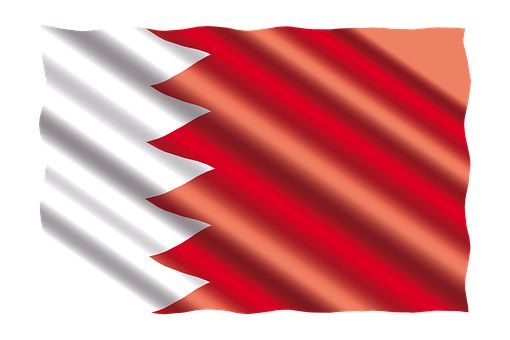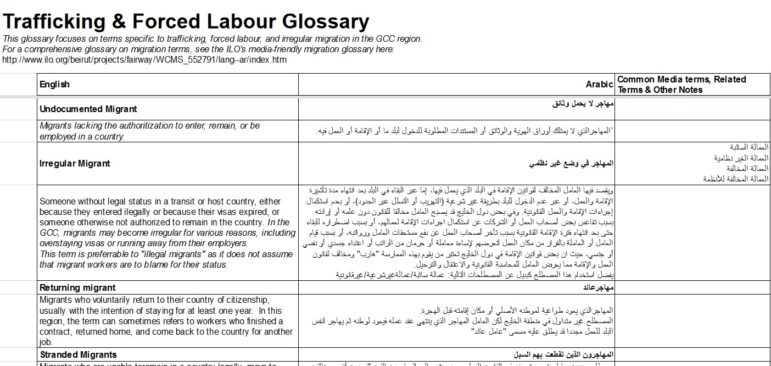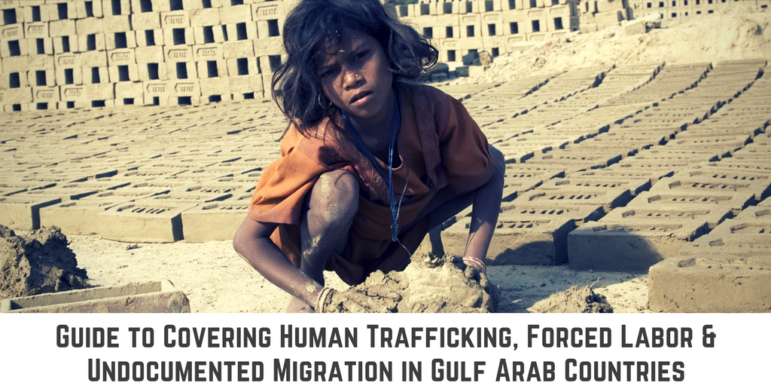
Tag
forced labour

Resource
Key Terms
Full guide here. العربية Forced labor, human trafficking and undocumented migration are prevalent across the globe. In the Gulf Cooperation Council (GCC) and wider Middle East and North Africa (MENA) region, specific and shared characteristics of labor and migration laws and practices facilitate forced labor and human trafficking. Definitions Forced Labor. All work or service which […]
Resource
Tips for Working in the United Arab Emirates
Full guide here. العربية These tips were provided by Yasin Kanade, a former Ugandan journalist deported for covering migrant worker issues in the United Arab Emirates. Media Environment A journalist seeking to write about human trafficking in the UAE has to understand that any writing seen as contrary to the government narrative is a punishable […]
Resource
Essential Reading
Full guide here. العربية Below we highlight the most critical sources for understanding trafficking, forced labor and irregular migration issues in the MENA region. Human Rights Reporting and News Human Rights Watch: HRW has produced multi-lingual reporting on the situation of migrant workers and domestic workers in the MENA region since the 2000s. Reports feature […]
Resource
A Guide to Reporting on the Gulf Arab Countries
Over 11 million migrant workers work in the six Middle Eastern countries — Saudi Arabia, Kuwait, the United Arab Emirates, Qatar, Bahrain and Oman. Journalists attempting to investigate human trafficking and forced labor in the region have faced many challenges. GIJN, in collaboration with human rights organizations, is launching this first bilingual guide to teach journalists best practices, tools and steps in reporting on human trafficking and forced labor in the Gulf region.




